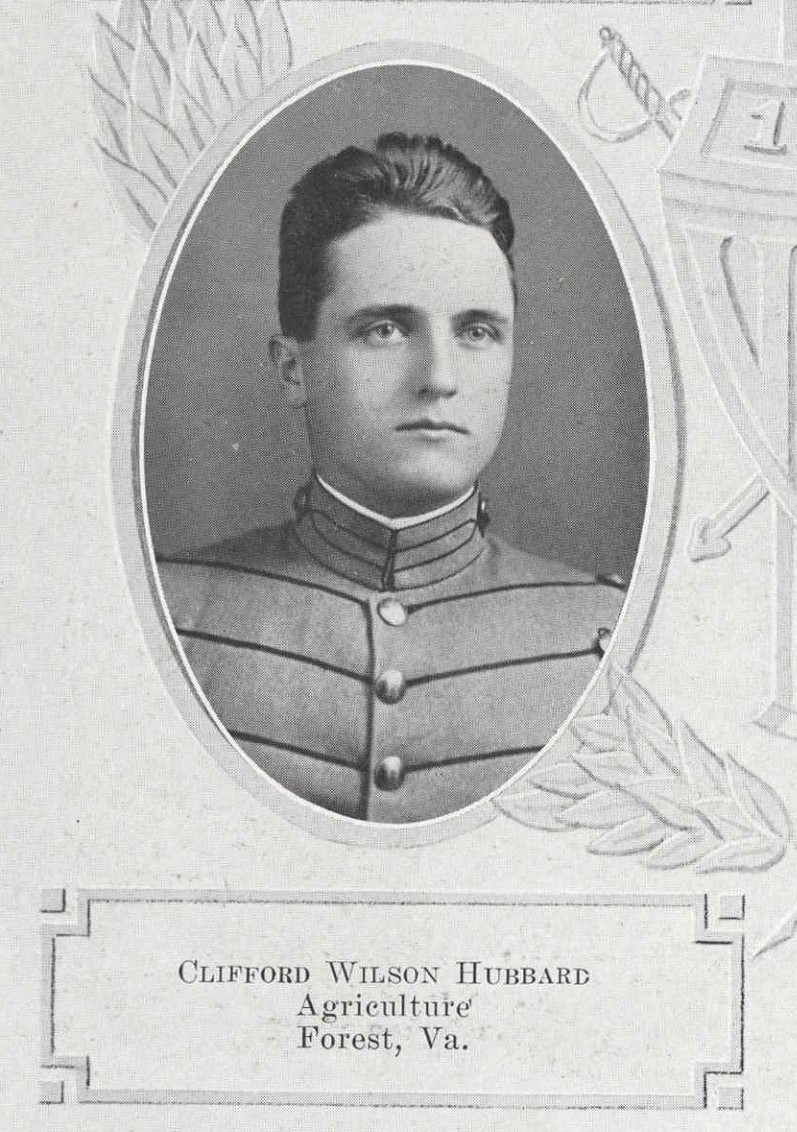Clifford Hubbard was born on November 17, 1891 in Virginia. He served in the US Army in WW1 and was wounded during the Battle of St. Mihiel. His brother, Samuel, was killed while serving with the 80th Infantry Division.
From Virginia Tech (VPI) in WW1: Clifford Wilson Hubbard
“September 12, we filed into some trenches and got orders to prepare for action… This was the first big barrage we had ever heard. As far as you could see to the right and let the sky was lit up and you could scarcely hear your own voice.”
-1st Lieutenant Clifford Hubbard on the first day of action at St. Mihiel
Clifford Hubbard from Forest, Virginia, entered military service in late 1917. After completing training at Camp Green in Charlotte, North Carolina in April 1918, his unit was sent to France. Upon their arrival, Hubbard’s unit spent over a month drilling before being sent to front line trenches in June. It was here that Hubbard wrote that he first experienced his “first taste of gas” and “machine gun fire.”
Clifford Wilson Hubbard, Letter in The Virginia Tech excerpt, February 15, 1919:
Soon, his unit was pulled from the front line in order to train for the upcoming American offensive at St. Mihiel, which began at 1 A.M. on September 12. During the first hours of the battle Hubbard wrote that the entire sky was “lit up” with shells and the artillery barrage completely drowned out his voice. When his unit went “over the top” at 5 A.M., Hubbard wrote that his unit “started and did not stop for three days.” Hubbard noticed that the first days of the Battle of St. Mihiel were so successful that German soldiers had only two ideas, to run, and “if they could not run fast enough, to surrender.”
After St. Mihiel, Hubbard and his unit participated in the Meuse-Argonne Offensive where he was shot through the chest by a German machine gun on October 14. While he was recovering Hubbard learned that his younger brother, Samuel Hubbard, died in combat on the same day Clifford was wounded. After learning of the death of his brother, Hubbard wrote that he could not wait to return home to start farming again, “The army is all right, but I think that I like farming a good deal better.”

PRIVATE CITIZENS SUPPORTING AMERICA'S HERITAGE
American
War Memorials Overseas, Inc.
War Memorials Overseas, Inc.
Hubbard Clifford Wilson
Name:
Clifford Wilson Hubbard
Rank:
First Lieutenant
Serial Number:
Unit:
355th Infantry Regiment, 89th Infantry Division
Date of Death:
1951-11-30
State:
Virginia
Cemetery:
Saint Stephen’s Episcopal Church Cemetery, Heathsville, Northumberland County, Virginia,
Plot:
Row:
Grave:
Decoration:
Comments:
